Suppose a person drinks the blood that comes out, is it the same as if no blood had been shed?
This argument is not valid, there are many organs in the human body, and this organ is composed of a variety of cells, the survival and activity of the cells need nutrients, such as oxygen, sugar, water and other nutrients, then the blood is the carrier of these nutrients, if the loss of blood is too much, the human organs will not be able to get the nutrients needed for normal, and then the phenomenon of organ failure will occur.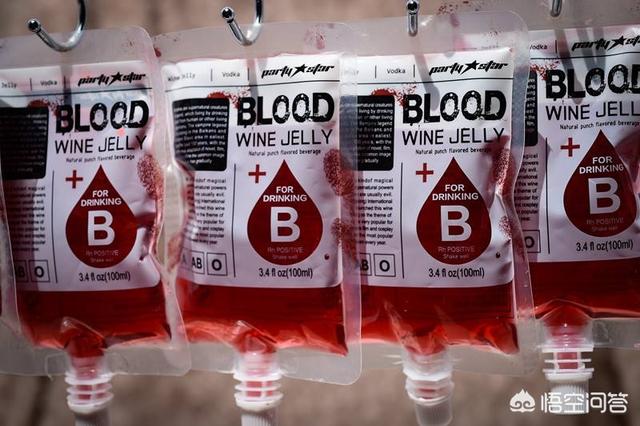
In addition, the main components of blood are plasma and blood cells, 90% of the plasma is water, the rest is some protein, sugar, hormones and other metabolic substances, if these substances enter the human body by the mouth, part of them will be absorbed by the gastrointestinal tract, and the rest will be excreted, and as for the blood cells in the white blood cells, red blood cells, as well as platelets, as long as these substances enter the human digestive system, they will be destroyed by the gastric acid The stomach acid will mercilessly destroy all these substances.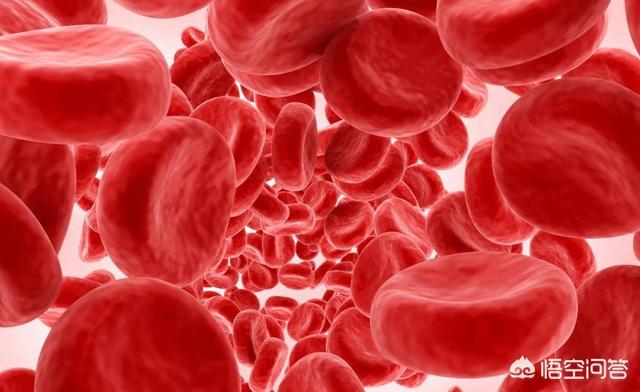
So drinking blood is useless, because the loss of blood means the loss of nutrients, as well as the continuous reduction of blood cells, these losses out of the material can not pass through the digestive system, the original return to the blood circulatory system, even if it is said that the human digestive system, can be recycled part of the existence of nutrients in the blood, but these nutrients relative to the loss of nutrients out of the nutrients, it is simply a drop in the bucket.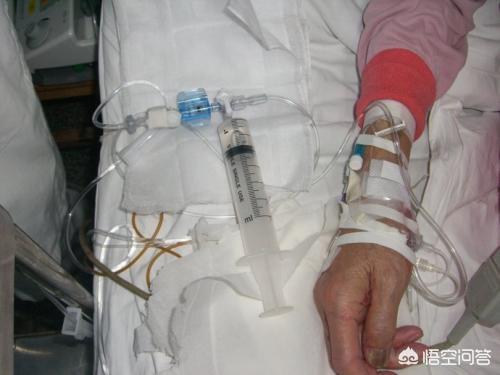
Finally a normal adult, the total amount of blood in the body should be between 3.8 liters and 5.6 liters, then if a person in a short period of time, the loss of 15% of the blood will appear physical abnormalities, such as dizziness, ringing in the ears, fuzzy consciousness, and so on, and if the loss of more than 40% of the blood of the human body, a person will have shock death phenomenon, then in order to avoid the discovery of tragedy, blood transfusion is currently the most effective means in medicine The most effective means .......
This idea is naive, blood has a complex cellular composition, but the body's digestive juices can kill and break down the cells, although the body can digest the blood and get some nutrients from it, the loss of blood will take longer to recover.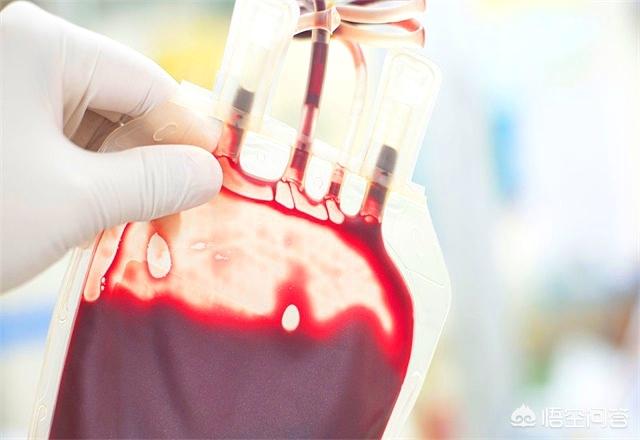
Human blood accounts for about 7 to 8% of body weight, or ten pounds, and contains red blood cells, white blood cells, lymphocytes, platelets, cytokines, antibodies, and many other diverse substances, and is mainly responsible for transportation functions. Loss of blood results in the loss of all blood components, theFluid components can be replenished relatively quickly after blood loss, either by external means such as transfusion or through the body's powerful regulatory ability to draw from the tissue fluids to replenish them, prioritizing the restoration of blood pressure, so as to ensure the amount of blood perfusion to the tissues throughout the body, and to avoid insufficient perfusion of the organs due to redistribution of the flow of blood and consequent organ failure, but due to the insufficiency of blood cells, it is necessary for the heart to beat at a higher frequency in order to compensate for the lack of blood transportation due to the loss of blood cells. The production of blood cells is through the bone marrow cells through a number of stages of development, the red blood cells are generated through the pathway of primary red blood cells - nucleated red blood cells - reticulocytes - mature red blood cells, mature red blood cells have the ability to transport, white blood cells and so on also need a certain amount of time to be able to regenerate, and the time required for the formation of different cells is not the same. The long process of blood cell formation makes the blood take quite a long time to return to its original state.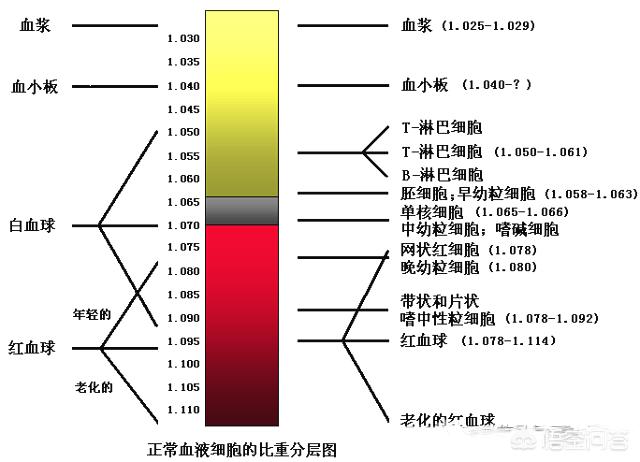
The structure of the human body makes the blood vessels is the real sense of the "body", the digestive tract is connected to the outside world, containing many harmful substances to the human body, so the human blood system and the digestive tract is not directly connected to the digestive absorption is only through the capillaries of the small intestine from the intestinal intake, the blood is drunk is not able to enter the blood directly, but will be digested by the digestive juices into small molecules, the useful components are absorbed, the useless part of the urinary system, the digestive tract out of the body. Blood cannot enter the bloodstream directly after it is drunk, but will be digested by the digestive juices into small molecules, the useful components are absorbed, and the useless parts are excreted through the urinary system and digestive tract. Blood contains liquid components and blood cells, which are very rich in material components, but the total amount is insufficient, and blood can indeed replenish some nutrients after being drunk.This includes water, electrolytes (including iron, an important component of red blood cells), vitamins, lipids, proteins, etc. Blood enters the digestive tract where it can be broken down into small molecules, but some of it is also excreted directly through the intestinal tract and urinary tract, so there is not enough of these substances in the blood for blood to be re-produced.They do not rejoin the bloodstream directly, and their replenishing effect on the body's blood pressure and blood cells is simply through the substances they contain. It is the transfusion that directly replenishes the lost blood and is categorized as a whole blood transfusion or just the input of blood components such as platelets.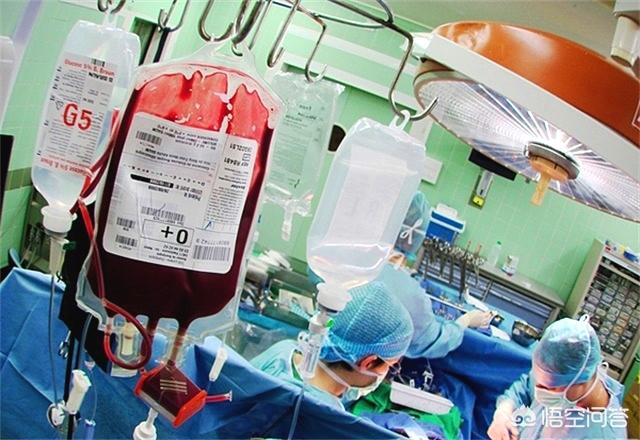
Drinking blood after a loss of blood will help to restore the blood, but it is through the process of digestion-absorption-re-formation of blood cells rather than directly into the blood, and the nutrients contained in the blood will only help to replenish a small portion of the blood.
This statement is wrong, first of all we have to figure out one of the most basic things, that is:the flow of blood in the blood vessels, is to maintain the circulatory system of our body. And what we drink goes into our intestines and into our digestive system. So even if we drink a lot of blood, it doesn't replenish the blood flow inside the blood vessels.
So which is the best way to directly replenish the blood flow inside the body? Blood transfusions, of course. Intravenous fluids or intravenous blood transfusions are fed directly into our blood vessels, which directly replenishes the blood flow inside them. This is why people who are hemorrhaging have to have a blood transfusion as soon as possible to expand their blood flow, only then can they be kept alive.
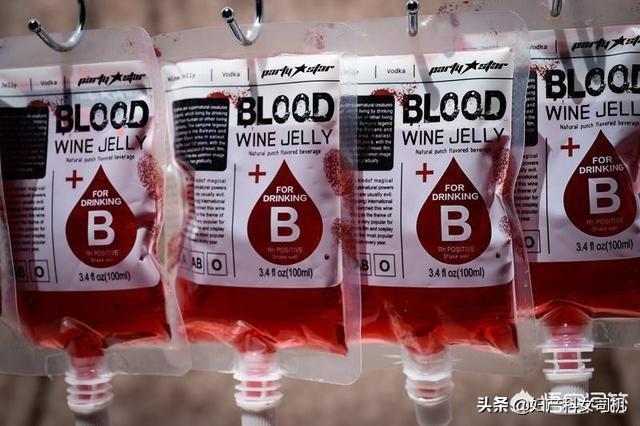
What we eat and drink will go to the stomach first, where it will be digested by gastric acid and then enter the intestines before the nutrients inside the food are further absorbed and then utilized by our body. If you want to supplement the nutrition, you can do it by improving the diet structure, but supplementing the blood is ineffective.
So, no matter how much blood you drink, what that blood ends up going into is the stomach and intestines, where it turns into proteins and other substances that are absorbed by the digestive system, which then becomes the source of the nutrients and energy that our bodies provide.

To replenish blood volume when you bleed too much, you need to use blood that is fed directly into your veins, and only then will it be effective. To use the simplest analogy, if you eat a pig's foot, does it grow a foot?
In layman's terms, this approach does not work.
First of all, let's talk about drinking water. When you drink water, part of it goes into the circulatory system to increase the capacity of the cardiovascular system, part of it goes into the muscles and internal organs, and some of it that cannot be absorbed because it is too much is excreted from the body.
There is a conversion process when liquid is absorbed, it will be broken down into water and nutrients first, and then the wastes that cannot be absorbed will be filtered out through the kidney deficiency.
Therefore, the blood that is shed and drunk cannot return to the blood system as it is. Otherwise, people who are injured and bleeding would just drink the blood, so why would they need to go to the hospital for a blood transfusion.
Wow, that's odd. Is that even possible?
Drinking too much alcohol regurgitation time, to the mouth, you are swallowing, which is equal to not vomited, the same reason the same reason! If you cut off their own hands, I have not seen to take a pick up and eat directly, waiting for the growth of ah, you said that people do have, the Western vampires exist this function, blood flow out, in the drink, equal to not flow! The key we are not vampires ah, we can not compare ah!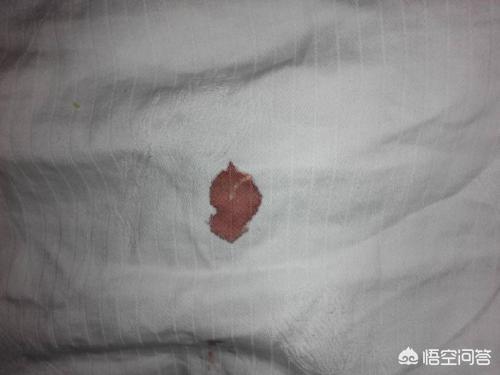
We are doing dark cuisine, if you have a lot of blood, we can process it, make a blood tofu what ah, it should be good, not as disgusting as raw drink, but also can be made into a dish, fried red and white blood tofu, shabu-shabu hot pot, I feel better than so drink it!
Okay, that's enough of the serious stuff, let's get down to the serious stuff! Let's talk about the benefits of drinking the blood that comes out of a person's mouth!
Protein enters the body and breaks down to produce amino acids to participate in protein synthesis in the body, and there are only 20 amino acids that make up protein, so it's equivalent to eating proteins that contain the same amino acids. Unused substances will be excreted with feces. There is no need to worry, drinking your own blood is not much different from drinking pig's blood or chicken blood. The components of human blood are not retained.
If you like it, give Orange a follow, a like or something, if you don't like it, just pass by!
What's the difference between that and a hungry person getting stuck with a bug by eating a golden mushroom?
We know that the human body consists of several important systems, such as the motor system, digestive system, respiratory system, urinary system, reproductive system, endocrine system, immune system, nervous system and circulatory system. Blood runs in the circulatory system, and if supplemental blood should also be directly supplemented into the circulatory system, wouldn't it be a donkey's mouth to supplement blood through the digestive system?
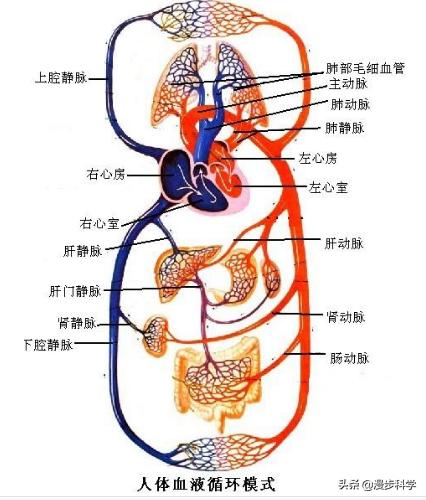
Blood actually belongs to the connective tissue, and its main components contain plasma, blood cells, genetic material, etc. When blood passes through the digestive system, the main components of blood are then broken down in the stomach and intestines into basic nutrients such as water, inorganic salts, amino acids and other nutrients, which are then absorbed by the body.
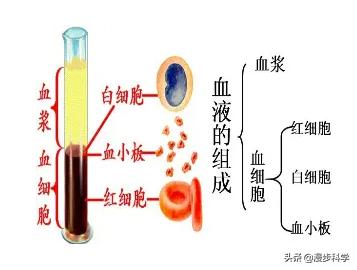
Of course the intestinal absorption of food can not be more than 100%, otherwise humans would not have poop and pee phenomenon, so that the idea that the outflow of blood directly drink can be equivalent to a blood transfusion is very incomprehensible idea, compared to the outflow of blood collection, and then through the blood vessels into the body, but also more reliable.
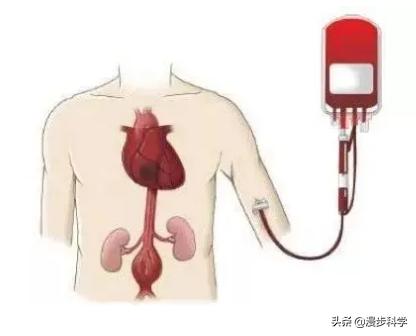
Thanks for browsing.
The blood that you drink goes to the digestive tract. The blood that goes out goes out of the veins. Only if you transfuse it back again by hanging is it the same as not flowing out. If you eat it, it's just being eaten by you as food.
"Drink blood for blood?" "Walnuts for the brain?" "Waist tonic kidney?" The inertia of the people of the country is to eat what to supplement what, where the need to supplement where, I really do not know how many years this kind of thinking can be replaced!
Drinking blood is the same as never bleeding? Obviously the questioner doesn't even have the most basic common sense, after food passes through the mouth it is digested and broken down by the digestive system to form small molecules that are absorbed in the intestines for the body to utilize!
So is there any way to put blood directly into a person's body? If the blood is from a hospital's blood bank, it is possible to put someone else's blood directly into your body for your own use through an intravenous transfusion!
It is also possible to transfuse blood back into your own body if it is from your own blood. This is called autologous blood transfusion, in which the slightly cleaner blood that comes out is filtered through a blood purification device before being fed into the body through a vein!
There are about 5000ml of blood in the human body, blood loss of more than 400ml will appear dizziness, panic, cold sweat, fatigue, dry mouth; blood loss of 1200ml will appear fainting, cold limbs, urination, irritability; greater than 2000ml will appear shortness of breath, no urine, and even hemorrhagic shock!
In the event of hemorrhage, the first step is to stop the bleeding!!!! A pressure bandage, ligature proximal to the heart, or hand pressure on the proximal end of the bleeding artery are all possible.
There was a news report before, a few people drink together, an excited bottle cut the artery in his hand, but no one will deal with it, as a result, the person bled to death 。。。。
I hope that we can understand that the previous idea of taking what you eat to make up for what you have done is wrong, and we should not always be misled by the so-called health care products in China and spend money indiscriminately!
Two completely different concepts, blood circulates in human blood vessels and maintains the body's entire circulatory system and energy supply, while drinking blood enters our digestive system and will eventually be digested and will not re-enter our blood vessels in the form of blood! To put it bluntly, drinking blood directly is not fundamentally different from eating food, and is even better than consuming something with a higher iron content to replenish blood!
If drinking blood can replenish blood directly, why bother with blood transfusions? Wouldn't it be enough to drink blood directly? And the fact that when a person loses a lot of blood, they all replenish it through a direct blood transfusion speaks volumes! A blood transfusion is the direct feeding of blood into the body's circulatory system, which is the equivalent of replacing lost blood!
Blood 90% are water components, in the process of the body's digestive system, such as gastric juices, large intestine and small intestine, water will be absorbed and utilized, the remaining components will also be basically converted into proteins and other nutrients are used by the body, the final form of the final form and the blood does not have anything to do with the blood, are converted into nutrients, and we usually eat meals with a variety of nutrients are the same!
In fact, many people do often "drink blood", such as pig's blood, but do you think that eating pig's blood can directly supplement the amount of blood in the human body? Of course, it is impossible, must go through the digestive system can, otherwise the human body is not the appearance of pig's blood?
It's a line of thought that seems to make so much sense, but then it's a bit of a no-brainer.
Normally, with blood transfusions we get it straight into our veins, drink it, and it should go into the digestive system. There are simply two circuits.
You've seen too many martial arts movies.
This question and answer are from the site users, does not represent the position of the site, such as infringement, please contact the administrator to delete.